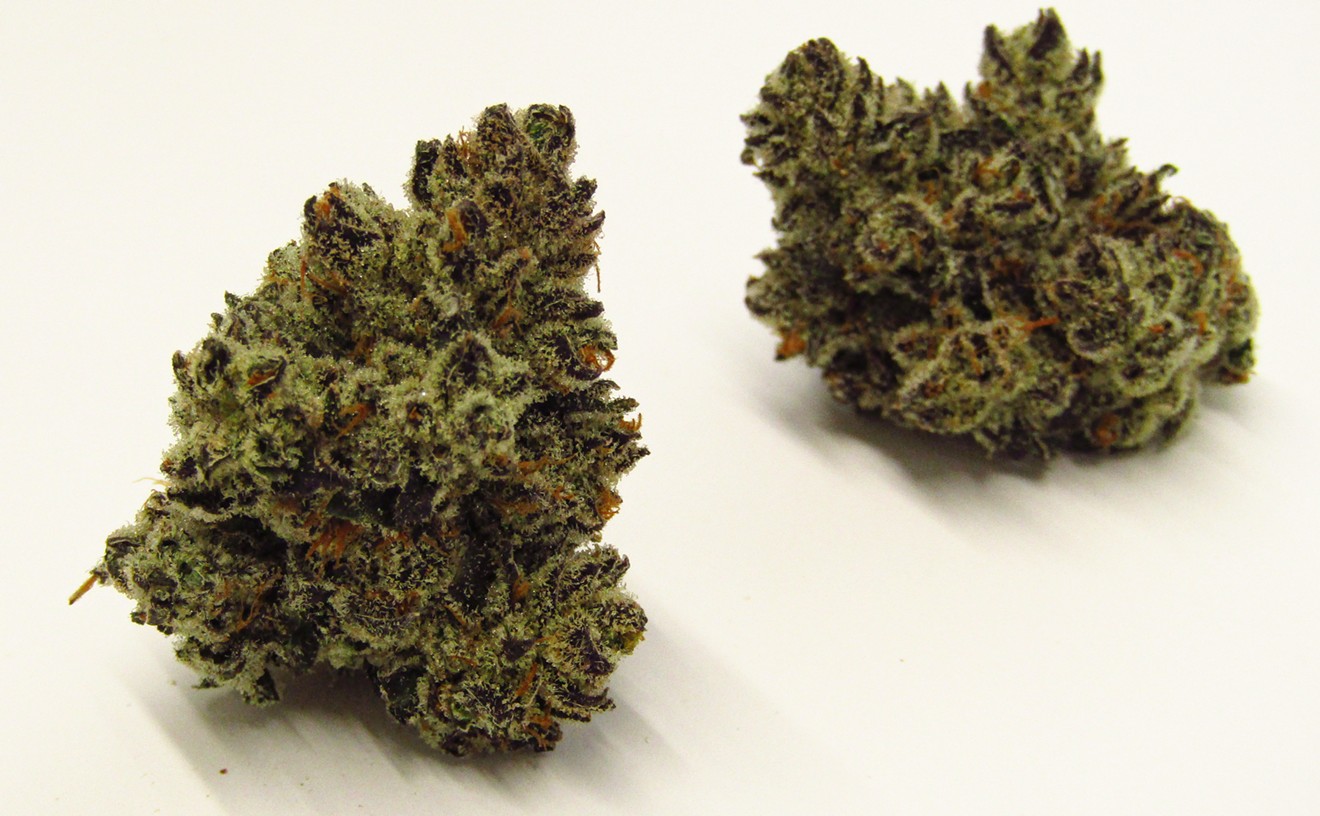Some cannabis users consider addiction to the plant to be a myth, but researchers at Colorado State University and the University of Tennessee, Knoxville, disagree. The two universities are now working together to deliver a texting-based counseling program for young adults with cannabis use disorder.
The new program, reserved for adults ages eighteen to 25, is funded by a $3.2 million grant from the National Institute on Drug Abuse; the study will last for six months and enroll 1,000 young adults from Colorado and Tennessee. Participants will first fill out a questionnaire about how often they use cannabis, and if they've ever wanted to stop or lessen cannabis use.
“The main question we’re looking at is how does this text-based study work in comparison to what students may typically access on a college campus through counseling,” explains Dr. Doug Coatsworth, the study's lead researcher at CSU. “Texting has become a part of our lives today, especially with young adults, and a program that allows them to use something they’re comfortable with may help them with treating cannabis use disorder.”
The text messages will be tailored to each individual participant, reminding them of where they’re most likely to use while also asking about their cravings and stress levels. If participants report a higher level of stress or a heavier rate of cannabis consumption, the text messages will then change to a more serious tone about the participant’s pot use.
“This particular counseling program is unique in that it activates their motivation and targets where they hang out with their peers,” says Dr. Michael Mason, a researcher at the University of Tennessee. “It gets them to think about who they hang out with, think about spending time with their friends in non-smoking environments, and look for improvements over time beyond just reducing their level of consumption. It also looks at improving factors such as their grades or relationships.”
But what exactly is cannabis use disorder? According to Dr. Amber McGregor at substance abuse center 1st Priority Institute for Better Living in Denver, symptoms include social or interpersonal problems caused by cannabis abuse, such as failure to fulfill major obligations at work or school. Those suffering from cannabis use disorder find themselves using more cannabis over a period of time, she says, consuming cannabis in larger amounts than originally intended.
The THC level in cannabis today is different than it was twenty years ago, she adds, which can be one factor in developing the disorder. “The concentration of THC [in cannabis flower] was 2 to 3 percent twenty years ago, but has risen to around 20 percent today,” McGregor says. “Parents don’t really know much about it, and with the legal system and changing societal perception of weed, it’s hard for them to teach their kids about cannabis use and not abusing it.”
Individual therapy has been the number-one treatment of cannabis use disorder, according to McGregor, as being in a safe space for young adults to be heard and talk freely can help them understand why they use cannabis in the first place. However, she also supports other avenues, such as CSU’s texting program, and believes it can be a stepping stone for young adults who are addicted to cannabis.
“If they’re volunteering to come in and address substance use, anything to help them with it is wonderful,” she says. “A text can bring the goal of stopping to the front of their minds.”
Coatsworth and Mason hope the texting program is effective enough to eventually become integrated into recovery strategies throughout the community. “The text-based strategy could be an alternative one that counseling centers could offer,” Coatsworth says. “It might help those who could be nervous about seeing a therapist or don’t want to go that route.”
Mason adds that counseling via texting could also be more cost effective than in-person treatment, and hopes to make it available for anyone who wants to try it. “It’d be great to scale it up and get into places like universities and health-care systems,” he says. “That way, it can be made more available for people who want it.”
Enrollment for the study at CSU will start during the 2020 spring semester for anyone ages 18 to 25 in the Fort Collins area. Participants under the age of 21 will not be prosecuted by law enforcement, nor will participants in Tennessee, where cannabis is illegal.
[
{
"name": "Air - MediumRectangle - Inline Content - Mobile Display Size",
"component": "12017618",
"insertPoint": "2",
"requiredCountToDisplay": "2",
"watchElement": ".fdn-content-body",
"astAdList": [
{
"adType": "rectangle",
"displayTargets": "mobile"
}
]
},{
"name": "Editor Picks",
"component": "17242653",
"insertPoint": "4",
"requiredCountToDisplay": "1",
"watchElement": ".fdn-content-body",
"astAdList": [
{
"adType": "rectangle",
"displayTargets": "desktop|tablet"
},{
"adType": "rectangle",
"displayTargets": "desktop|tablet|mobile"
}
]
},{
"name": "Inline Links",
"component": "18838239",
"insertPoint": "8th",
"startingPoint": 8,
"requiredCountToDisplay": "7",
"maxInsertions": 25
},{
"name": "Air - MediumRectangle - Combo - Inline Content",
"component": "17261320",
"insertPoint": "8th",
"startingPoint": 8,
"requiredCountToDisplay": "7",
"maxInsertions": 25,
"watchElement": ".fdn-content-body",
"astAdList": [
{
"adType": "rectangle",
"displayTargets": "desktop|tablet"
},{
"adType": "rectangle",
"displayTargets": "desktop|tablet|mobile"
}
]
},{
"name": "Inline Links",
"component": "18838239",
"insertPoint": "8th",
"startingPoint": 12,
"requiredCountToDisplay": "11",
"maxInsertions": 25
},{
"name": "Air - Leaderboard Tower - Combo - Inline Content",
"component": "17261321",
"insertPoint": "8th",
"startingPoint": 12,
"requiredCountToDisplay": "11",
"maxInsertions": 25,
"watchElement": ".fdn-content-body",
"astAdList": [
{
"adType": "leaderboardInlineContent",
"displayTargets": "desktop|tablet"
},{
"adType": "tower",
"displayTargets": "mobile"
}
]
}
]











